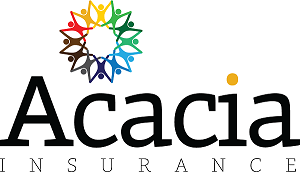While Australia has been relatively protected from the spread of Coronavirus (COVID-19), many businesses have been disrupted due to social distancing requirements, travel, import and or export restrictions.
In response to some frequently asked questions we’ve received from clients, we’ve worked with Insurance Advisernet and LMI Group to clarify how insurance responds (and in some cases doesn’t respond) in the pandemic environment, as well as provide some resources and risk management considerations.
Business interruption
Traditionally, business interruption policies only cover disruption to a business as a result of damage to ‘insured property’. However, over time, insurers widened the protection to provide coverage as a result of a closure of the business by a public authority for a number of risks including infectious disease. This was designed to cover things such as an outbreak of Legionnaires disease, or a measles outbreak which closes down one or two buildings disrupting a small number of businesses. Notwithstanding this some policies provide coverage for an outbreak up to 50 kilometres from the business location, but most only cover at or near the premises insured.
While there may be exceptions where a business has secured very specialist global insurance, the cover afforded by both business packs and standard Industry Special Risks policies are not intended to cover disruption caused by an outbreak in a different state let alone a different country.
The outbreak of the SARS (Severe Acute Respiratory Syndrome) in 2013 prompted insurers and reinsurers to do modelling as to just how large claims could amount to in the event of a major pandemic such as the Spanish Flu which lasted from January 1918 to December 1920 and resulted in the death of anywhere between 40 and 100 million people. The reality is that the global funds held by insurers could not meet business interruption claims arising from such a large-scale pandemic. We would have no insurance industry to protect against the traditional insured perils.
Not wishing to strip away the coverage that was being offered for localised infectious disease outbreaks insurers, prompted by reinsurers, added an exclusion to their policies stating that disruption from a number of highly effective diseases were not covered. These types of diseases can arise at any time and originate from new sources, therefore the insurance industry introduced a clause which excludes any disease that is notifiable under the Quarantine Act 1908 (Cth) which has been updated by many insurers in line with changes in legislation to the Biosecurity Act 2015 (Cth).
As of the end of January 2020, Coronavirus is a listed disease and so all but a few, policies exclusions will take effect. This means that regrettably there is no insurance protection for disruptions to business arising from Coronavirus. As with any other threat it is important to consider what risk management measures you can introduce to mitigate the risk to your staff, customers and business.
Risk management tips
How to avoid infection
Here is a short list of ways to minimise the spread of Coronavirus:
- Practice good personal hygiene.
- Avoid contact with anyone with or suspected of having Coronavirus.
- Boost your immune system by eating well, exercising, having enough sleep, and keeping your stress levels under control.
- Cancel or delay any travel to affected areas until the crisis is over.
Recommended actions for your organisation
- Implement a home quarantine regime for anyone that has travelled to an infected country or is likely to have been in contact with someone infected with Coronavirus.
- Review and update if necessary human resource (‘HR’) policies on fitness for work including possible quarantining of employees and formalising the requirement for employees to remain off work if affected.
- Consider or extending flexible working arrangements to reduce the likelihood of the spread of the virus in the workplace or the community.
- Update travel rules and arrangements limiting non-essential business travel.
- If not already in place, provide sanitized hand washing stations for use by staff and visitors.
- Review arrangements for workplace hygiene and cleaning protocols including “cough and sneeze” etiquette.
- Protect the mental wellbeing of employees concerned about the coronavirus.
- Ensure clear and honest communication to employees on their welfare.
Keep informed
Everyone should remain alert for updates and advice from the relevant authorities on additional steps to manage the spread of the disease. The health department in each state is providing excellent resources and advice and regular updates. Before travelling, check for and take the advice of any travel warnings on smartraveller.gov.au.
Business continuity management planning
A pandemic is just one risk facing modern organisations. Having a fully documented and exercised business continuity management plan is important for every business. Visit www.continuitycoach.com to learn more.
Source: Download our brochure created in partnership with Insurance Advisernet and LMI Group
People risk
There are additional considerations you need to be aware of as a result of COVID-19.
If your team is working from home/working remotely, you’ll need to adapt your safety management accordingly.
One quick but important thing you can do is to check that your people have optimal ergonomics taken into account in their work from home set up. Here is a quick reference guide from Altius Group to assist you.
Altius Group has offered to provide complimentary consultations to Acacia Insurance clients and provide advice in areas you need to address in the immediate and medium term on a range of topics including WHS compliance, environmental (working from home) and to support both risks in physical and mental wellbeing. Click here and contact us if you want to take advantage of this offer.
Safe Work Australia has also provided a list of resources regarding COVID-19 – click here to read their statement and here for their information on COVID-19 work health and safety.
Below is an extract from Safe Work’s COVID-19 statement of regulatory intent:
___
In particular, WHS regulators will take into account an employer’s ability to meet its WHS duties given the constraints associated with the pandemic. This may include duties related to:
- training, such as participation in face-to-face training and practical hands on training demonstrations
- working from home arrangements, and
- provision of hygiene products.
Generally, WHS regulators will take a supportive and educative approach to compliance during this time provided duty holders have made genuine attempts to comply with requirements, but compliance is affected due to factors outside their direct control. However, WHS regulators may use enforcement tools such as prohibition notices where appropriate, particularly where actions or omission have resulted in serious health and safety risks to workers or the community.
Workers
Workers have obligations under WHS laws to do what is reasonably practicable to protect themselves and others at the workplace. If a worker believes they are at risk of infection of COVID-19 and they have been at work, they should inform their manager or WHS representative as soon as possible. If they are not satisfied with the response, they should contact their WHS Regulator. Contact details are available on the WHS authorities’ contact information page.
Employers
All employers must prepare and take action to protect workers and others at their workplace from the risk of exposure to COVID-19 so far as is reasonably practicable. All employers should:
- have a plan in place to respond to the issues created by the pandemic
- review their exposure and infection control policies and procedures, actively promote social distancing, good hand and respiratory hygiene and increase cleaning of common areas within the work environment
- develop and implement safe systems of work (in consultation with workers and/or their health and safety representatives that take into account directions and advice provided by health authorities, and
- keep monitoring the COVID-19 situation as it develops, relying on information from authoritative sources such as public health authorities.
Source: Safe Work Australia
___
Additional employer resources
Moray & Agnew Lawyers have prepared several helpful resources for employers in the current environment:
Technology and innovation during a challenging time
Our colleagues at KnowHowHere have created COVID-19 infection tracking for field workers:
- If/when one of your workers/contractors tests positive to COVID-19 it raises the question ‘which other workers have they been close enough to for potential infection?’
- They’ve upgraded KnowHowHere so that now you can answer the question – ‘which workers/contractors were in the same area as the infected worker and for how long?’
- So if any worker has been in the same area (which you define with beacons and/or geofences) as an infected worker for 5-10 minutes or more, we can identify them – and go back for as many days as needed to identify all potentially impacted workers.
- We can define the work areas quite specifically using Bluetooth beacons (far more accurate than GPS and works indoors).
This may be valuable to your business both to keep workers safe and to keep them working (by avoiding whole site shutdowns). Of course it’s not just field workers – for any organisation who wants the ability to immediately manage an infection in their site this could be a useful asset!
This feature is on top of all the existing KnowHowHere features. Important note regarding privacy: for this application workers/contractors can be anonymous, and we can keep all the data and only release it to the organisation in the event that there’s an infection.
If you want to find out more about this app or how it could work for your business, please contact us.
Disclaimer
The advice in this article is general in nature. While the utmost care has been taken in the preparation of this preliminary advice or opinion, you use it at your own risk. Acacia Insurance and Insurance Advisernet Australia specifically disclaim any liability, whether based in contract, tort, negligence or otherwise, for any direct, indirect, incidental, punitive, consequential or other damage arising out of or in any way connected with the use of or reliance on the content of the preliminary advice or opinion.

